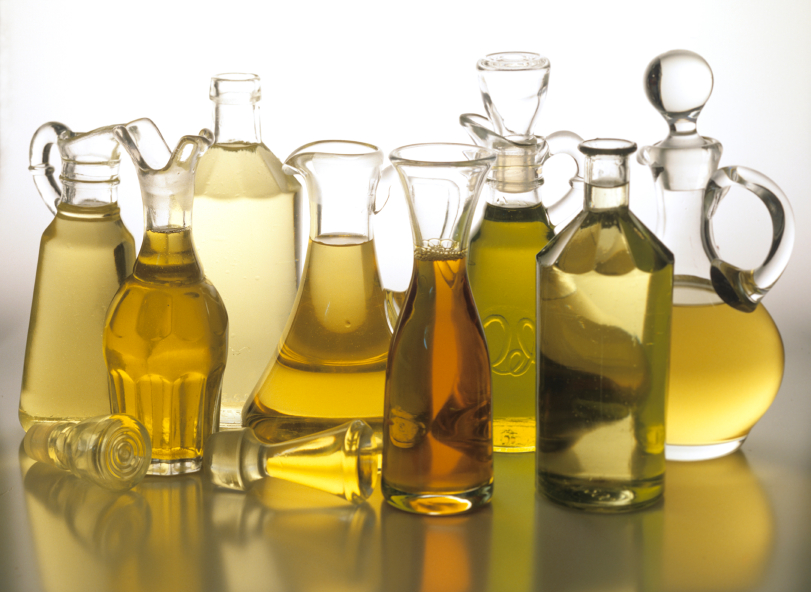
Cooking Oils Comparison Guide – What’s Hot and What’s Not
There are arguments for and against using different cooking oils all over the web. Some oils are controversial; many bloggers and health experts advocate using coconut oil for everything from stir-fries to frosting, where as others swear that it’s one of the worst fats to include in your diet. We’ve decided to take a look at 6 popular cooking oils and give you the rundown on each.
Olive Oil
Olive oil is packed full of monounsaturated fatty acids, considered to be the healthiest dietary fats. Monounsaturated fatty acids are thought to help lower total cholesterol and studies have found they may also help regulate insulin levels and assist with blood sugar control. Olive oil is sold in the United States in three varieties, extra virgin olive oil, olive oil, and light-tasting olive oil. For cooking, health experts recommend true extra virgin olive oil over other types, because it is the highest grade and least processed form of olive oil. When shopping for olive oil, higher-quality brands are usually better; look out for a harvest date on the label. Fresher oil retains more of the nutrients that make this oil a great addition to your diet.
 Coconut Oil
Coconut Oil
Coconut oil was everywhere in 2013. It was previously thought of as one of the worst fats to consume, due to its high saturated fat content. One tablespoon of coconut oil contains 117 calories and 13.6 grams of fat. Now, new research suggests it may be OK to cook with, in small quantities. Coconut oil is high in the saturated fat lauric acid, which raises LDL cholesterol (bad cholesterol) but at the same time increases levels of HDL cholesterol (good cholesterol). This is beneficial over other saturated fats such as butter, which has no effect on your HDL cholesterol levels. So coconut oil may not be the enemy it was once claimed to be, but we still say eat it sparingly until more research is conducted.
Canola Oil
Canola oil is low in saturated fat and high in monounsaturated and polyunsaturated fats. Canola oil is produced from the seed of the canola plant, and has a medium-high smoke point, making it suitable for oven cooking, baking and stir-fries. The oil contains the omega-3 fatty acid, alpha-linolenic acid, which is thought to protect the heart due to its effect on blood pressure, cholesterol, and inflammation. Canola oil is widely touted as a healthy oil, but it isn’t without controversy. Approximately 90% of canola plants in the U.S. are genetically modified. It’s still unclear what effect GMO’s have on the environment and humans, and because of this, many people avoid genetically modified foods altogether.
Margarine
Margarine was created in the 1800s as a cheaper alternative to butter. Margarine is produced using vegetable oils and is a cholesterol free fat. Margarine is rich in polyunsaturated and monounsaturated ‘good’ fats, thought to reduce LDL cholesterol. Unfortunately, some brands of margarine contain trans fat, created when vegetable oil is hydrogenated. Trans fat increases blood cholesterol and the risk of heart disease. Generally, the harder the margarine, the more trans fat it contains. Today various companies sell margarine products without trans fats, often marketed as a healthier alternative to butter. The Mayo Clinic suggests opting for soft, spreadable margarine if you wish to include it in your diet, but make sure to read the label first.
Butter
Humans have eaten butter for centuries. Today it’s still a staple of the standard American diet, with millions of people consuming it each day. High in saturated fat, eating too much butter may raise bad cholesterol levels and increase the risk of cardiovascular disease. Butter was declared nutritionally poor at the height of margarine’s popularity, before scientists fully understood the detrimental effects of trans fat. Today, nutritionists advise people to only include very small amounts of butter in their diets and to choose healthier fats such as olive oil when possible.
Peanut Oil
Peanut oil is high in monounsaturated fat and low in saturated fat. It has a medium-high smoke point, making it a good choice for baking, oven cooking, and stir-frying. When buying peanut oil, look for 100% peanut oil on the label. Some manufacturers will combine peanut oil with cheaper, highly processed oils. Peanut oil is one of the healthier oils available at the grocery store; it doesn’t contain trans fat or cholesterol. Health experts say it’s a good addition to a healthy diet, but like all fats, only use in moderation.
Signature MD’s registered dietitian Jessica Wegener, typically recommends clients have a few varieties of oils on hand for different types of cooking. “I recommend consumers choose more heart healthy oils that are higher in monounsaturated fats like olive, canola, sunflower and peanut oil, however just because it’s heart healthy, it doesn’t mean unlimited portions, the calories remain the same at approximately 120 calories per tablespoon.
Sources:
http://www.mayoclinic.org/food-and-nutrition/expert-answers/FAQ-20058439 – Olive oil: What are the health benefits? Mayo Clinic.
http://www.aboutoliveoil.org/cookinguses.html#Extra – Cooking Uses by Type. About Olive Oil.
http://www.npr.org/blogs/thesalt/2013/09/30/226844915/to-get-the-benefits-of-olive-oil-fresh-may-be-best – To Get The Benefits Of Olive Oil, Fresh May Be Best. NPR.
http://www.everydayhealth.com/columns/johannah-sakimura-nutrition-sleuth/coconut-oil-the-good-the-bad-and-the-unknown/?xid=tw_everydayhealth_sf – Coconut Oil: The Good, the Bad, and the Unknown. Everyday Health.
http://www.npr.org/templates/story/story.php?storyId=129010499 – Genetically Modified Canola ‘Escapes’ Farm Fields. NPR.
http://www.webmd.com/food-recipes/canola-oil – Canola Oil Cooking Benefits.
WebMD.
http://www.mayoclinic.org/butter-vs-margarine/expert-answers/faq-20058152 – Butter vs. margarine: Which is better for my heart? Mayo Clinic.
http://www.heartfoundation.org.au/healthy-eating/fats/Pages/butter-margarine.aspx – Butter vs margarine. Heart Foundation.
http://health.clevelandclinic.org/2012/05/heart-healthy-cooking-oils-101/ – Heart-Healthy Cooking: Oils 101. Cleveland Clinic.
http://www.livestrong.com/article/400101-is-peanut-oil-good/ – Is Peanut Oil Good for Health? Livestrong.
About SignatureMD
SignatureMD is one of the nation’s largest firms providing initial conversion and ongoing support services to concierge medicine physicians. SignatureMD currently partners with over 200 affiliated primary care physicians and specialists across 35 states, and its network is rapidly expanding.